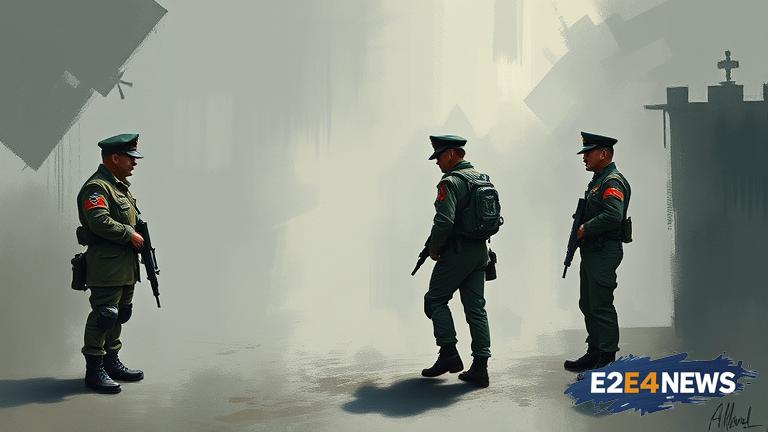The United Kingdom is embroiled in a contentious debate over the potential prosecution of veterans who served during the Northern Irish Troubles. Labour leader Sir Keir Starmer has ignited the controversy by suggesting that veterans could face prosecution for their actions during the conflict. The Northern Irish Troubles, which lasted from the late 1960s to the late 1990s, were a period of intense sectarian violence and terrorism in Northern Ireland. The conflict involved the British military, as well as various paramilitary groups, including the Irish Republican Army (IRA) and the Ulster Volunteer Force (UVF). Many veterans who served during this time have been hailed as heroes for their bravery and sacrifice. However, some have also been accused of committing human rights abuses and other crimes. Starmer’s comments have sparked outrage among some veterans and their supporters, who argue that prosecution would be unfair and unjust. They point out that many veterans have already been investigated and cleared of any wrongdoing, and that further prosecution would be a form of double jeopardy. Others argue that prosecution is necessary to hold accountable those who committed crimes, regardless of their military status. The issue is complex and contentious, with many different perspectives and opinions. The UK government has established several mechanisms for dealing with the legacy of the Troubles, including the Historical Investigations Unit and the Independent Commission on Information Retrieval. However, these mechanisms have been criticized for being slow and ineffective. The possibility of prosecution has also raised concerns about the impact on veterans’ mental health and wellbeing. Many veterans have already struggled with the physical and emotional scars of their service, and the prospect of prosecution could exacerbate these issues. The UK’s veterans’ community is a significant and vocal group, with many organizations and charities advocating on their behalf. These groups have been quick to condemn Starmer’s comments and argue that veterans should be protected from prosecution. The issue has also sparked a wider debate about the UK’s approach to dealing with its past conflicts and the treatment of its veterans. Some have argued that the UK should follow the example of other countries, such as the United States, which has a more comprehensive and supportive system for its veterans. Others have argued that the UK’s approach should be more focused on reconciliation and healing, rather than prosecution and punishment. The controversy surrounding the potential prosecution of veterans has also highlighted the need for greater understanding and awareness of the issues affecting the veterans’ community. This includes the need for better mental health support, as well as more effective mechanisms for dealing with the legacy of the Troubles. As the debate continues, it is clear that the issue of prosecuting veterans will remain a contentious and complex one. The UK government will need to carefully consider the different perspectives and opinions, and work to find a solution that is fair, just, and supportive of its veterans. The possibility of prosecution has also raised questions about the role of the UK’s military and its relationship with the government. Some have argued that the military should be held to a higher standard, and that those who commit crimes should be prosecuted regardless of their military status. Others have argued that the military is a unique institution, and that its members should be treated with greater leniency and understanding. The issue has also sparked a debate about the impact of prosecution on the UK’s military morale and effectiveness. Some have argued that prosecution could undermine the morale of serving soldiers, and make it more difficult for the military to recruit and retain personnel. Others have argued that prosecution is necessary to maintain the integrity and reputation of the military, and to ensure that it is held to the highest standards of conduct. As the controversy continues, it is clear that the issue of prosecuting veterans will remain a contentious and complex one, with many different perspectives and opinions. The UK government will need to carefully consider the different arguments, and work to find a solution that is fair, just, and supportive of its veterans.
